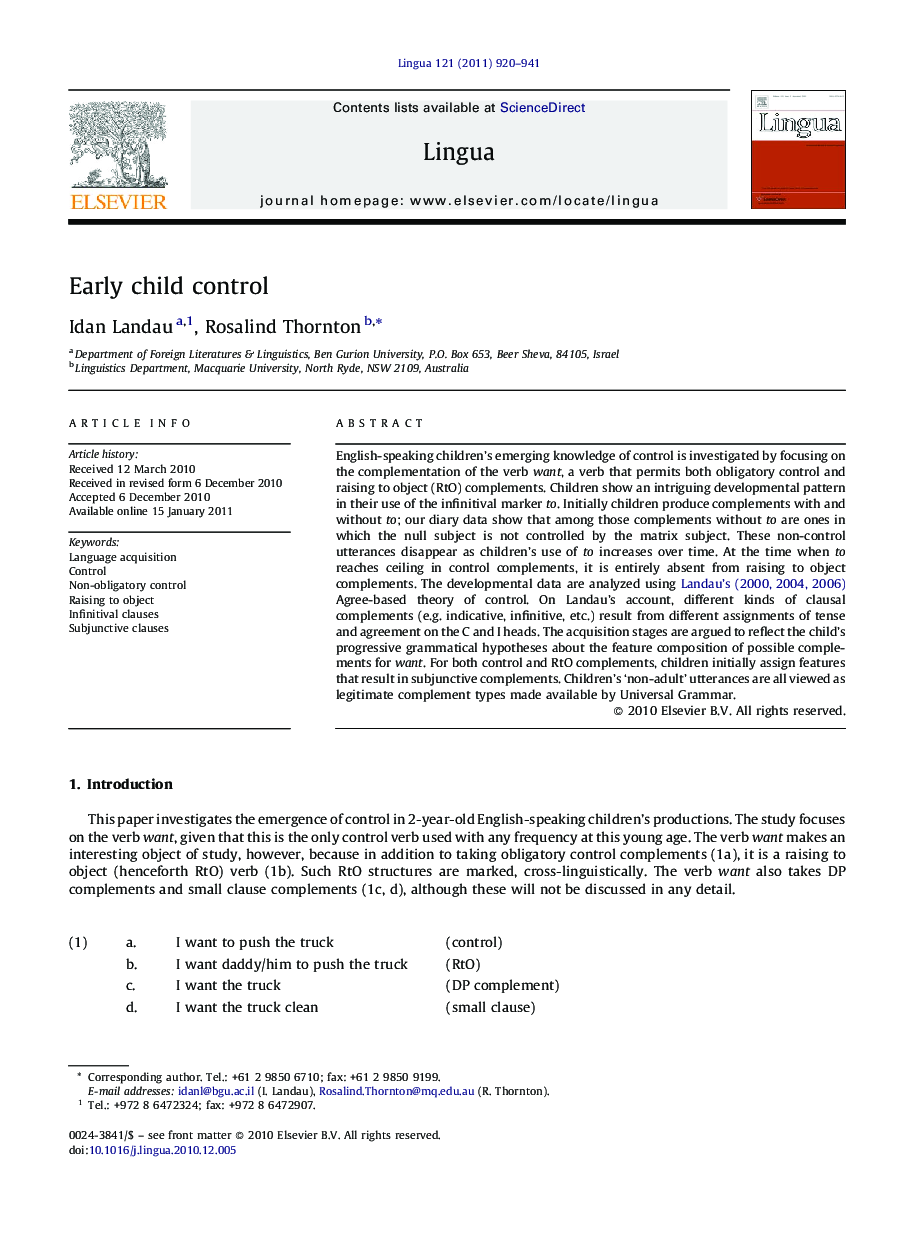| کد مقاله | کد نشریه | سال انتشار | مقاله انگلیسی | نسخه تمام متن |
|---|---|---|---|---|
| 935988 | 923947 | 2011 | 22 صفحه PDF | دانلود رایگان |
عنوان انگلیسی مقاله ISI
Early child control
دانلود مقاله + سفارش ترجمه
دانلود مقاله ISI انگلیسی
رایگان برای ایرانیان
موضوعات مرتبط
علوم انسانی و اجتماعی
علوم انسانی و هنر
زبان و زبان شناسی
پیش نمایش صفحه اول مقاله

چکیده انگلیسی
English-speaking children's emerging knowledge of control is investigated by focusing on the complementation of the verb want, a verb that permits both obligatory control and raising to object (RtO) complements. Children show an intriguing developmental pattern in their use of the infinitival marker to. Initially children produce complements with and without to; our diary data show that among those complements without to are ones in which the null subject is not controlled by the matrix subject. These non-control utterances disappear as children's use of to increases over time. At the time when to reaches ceiling in control complements, it is entirely absent from raising to object complements. The developmental data are analyzed using Landau's (2000, 2004, 2006) Agree-based theory of control. On Landau's account, different kinds of clausal complements (e.g. indicative, infinitive, etc.) result from different assignments of tense and agreement on the C and I heads. The acquisition stages are argued to reflect the child's progressive grammatical hypotheses about the feature composition of possible complements for want. For both control and RtO complements, children initially assign features that result in subjunctive complements. Children's 'non-adult' utterances are all viewed as legitimate complement types made available by Universal Grammar.
ناشر
Database: Elsevier - ScienceDirect (ساینس دایرکت)
Journal: Lingua - Volume 121, Issue 5, April 2011, Pages 920-941
Journal: Lingua - Volume 121, Issue 5, April 2011, Pages 920-941
نویسندگان
Idan Landau, Rosalind Thornton,